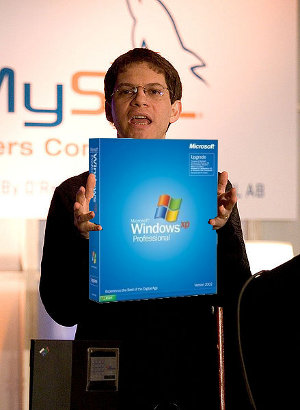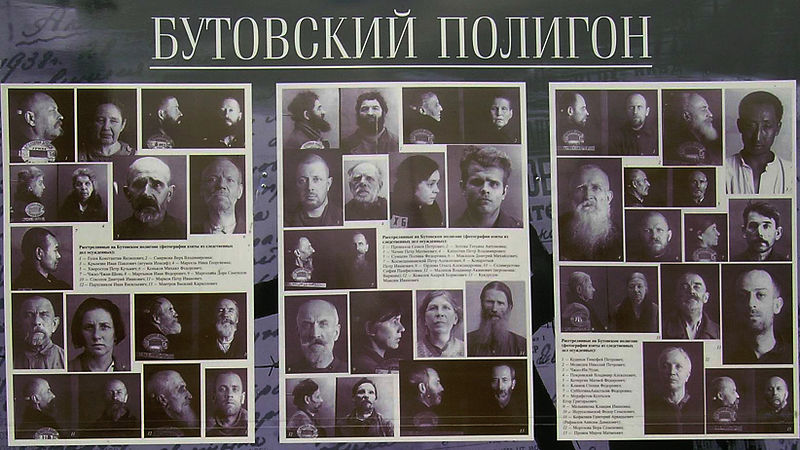Before we begin part II we wish to provide some new information that may relate to what we’re about to publish. Florian Müller has just made it publicly known that many people were attacked on Friday (not just in France) and we too had been bullied by the EPO. As Müller put it: “The conflict between the leadership and staff representatives of the European Patent Office appears to be totally out of control now. The latest information would be unthinkable anywhere in the civilized world, but the European Patent Organization simply isn’t part of the civilized world around it.”
This shows that EPO fails miserably both in technical terms and in ethical terms. The EPO tries to justify its abusive behaviour by arrogantly claiming improved “efficiency” or something along those lines; but whose efficiency? Large foreign corporations? The service provided by the EPO these days is a huge embarrassment to Europe. No wonder we see SMEs and their lawyers publicly complaining about the EPO online. The EPO is under fire even from its very own customers, not just its own employees (who are now demonstrating).
Now we begin our second part (of four), starting with Müller’s comments (direct quotes) on the first part [1, 2]. “That promotion [of Bergot],” he explained, “could indeed explain a different rumor I heard about Blatterstelli and won’t talk about in public. Or the other way round: that rumor could explain the promotion.”
In his capacity as a staff representative, the Complainant was however found to have locus standi to bring a complaint on behalf of the Central Staff Committee.
What is significant here is that the ILO-AT, which is the international tribunal responsible for EPO staff disputes, has essentially taken the position that an appointment or transfer from staff grade A3 to A6, such as happened in the case of Ms Bergot, offends against the fundamental principles governing such matters.
According to information we have received, Bergot’s controversial promotion from A3 to A6 is the subject of an appeal which is currently pending before the Administrative Tribunal of the ILO. This growing pressure from the ILO-AT may help explain the crackdown of the EPO on staff representatives (the subject of a separate post — one which is yet to come). These staff representatives are not sources, whistleblowers or anything. They’re just seen as a threat by EPO management because they’re pursuing justice for the workers and they exercise basic rights (such as the right to assemble).
105th Session
Judgment No. 2762
The Administrative Tribunal,
Considering the second complaint filed by Mr A. W. against the European Patent Organisation (EPO) on 13 December 2006 and corrected on 11 January 2007, the Organisation’s reply of 30 April, the complainant’s rejoinder of 22 June and the EPO’s surrejoinder of 6 September 2007;
Considering the applications to intervene filed by Messrs H. S. and W. M. on 22 June 2007 and by Messrs F. B., L. G., B. H., L. P. and L. R. M. on 2 July, and the letter of 18 July 2007 by which the Organisation indicated that it had no comments to make on those applications;
Considering Article II, paragraph 5, of the Statute of the Tribunal;
Having examined the written submissions;
Considering that the facts of the case and the pleadings may be summed up as follows:
A. The complainant, a German national, was born in 1969. He joined the European Patent Office, the EPO’s secretariat, on 1 September 1997 as an examiner. On 23 August 2004 the Office published vacancy notice EURO/3959, advertising a two-year contract for an administrative employee post at grade B5/B1. Of the 92 candidates who applied for the post, three were interviewed by the Selection Board, including Mrs P., the wife of the then President of the Office. In its report of 21 October 2004 the Selection Board recommended that Mrs P. be appointed to the post and that one of the other two candidates who had been interviewed be placed on a reserve
list. Mrs P. was the successful candidate, and she took up her duties in November 2004.
By a letter to the President dated 10 February 2005 the complainant requested, in his capacity as chairman of the local Staff Committee in The Hague, a review of the decision to appoint Mrs P. He also signed, together with other staff representatives, a similar request made on behalf of the Central Staff Committee in a letter dated 15 February. Both letters stipulated that if the requests for review were refused, the letters were to be considered as internal appeals.
The complainant was informed by a letter of 17 March 2005 that the President considered that the relevant provisions of the Service Regulations for Permanent Employees of the European Patent Office had been applied correctly and that consequently the matter had been referred to the Internal Appeals Committee for an opinion. The two appeals were joined.
The parties did not request oral hearings. However, the three members of the Selection Board for the vacancy were heard in camera by the Committee during its examination of other internal appeals contesting Mrs P.’s recruitment, and the Committee took into account relevant evidence gathered during those hearings when examining the appeals submitted by the complainant and the other staff representatives. In its opinion of 10 August 2006 the Committee recommended by a majority that the appeal be dismissed as unfounded. The minority, however, drew attention to a number of “troubling anomalies/deficiencies/coincidences” and concluded that “the essential aim [of the selection procedure] was undoubtedly to secure a job for Mrs P. for the duration of her husband’s term as President in accordance with his expressed wish”. On 4 October 2006 the Vice-President in charge of Directorate-General 1 (DG1), acting on delegated authority, endorsed the recommendation of the majority of the Committee. That is the impugned decision.
B. The complainant questions the validity of the selection procedure for vacancy EURO/3959 on a number of grounds. He posits that that procedure was influenced by high-level authority within the Organisation, which would constitute an abuse of power. Even though the members of the Selection Board denied having been placed under explicit pressure to recommend Mrs P., this does not preclude the possibility that they were influenced by “indirect, subliminal pressure”. As evidence of this he contends that it is obvious that the Board members would try not to “displease the Authority” who makes decisions about their careers. He points out that the Selection Board considered the candidates’ international and diplomatic experience and external contacts, even though these criteria were not listed in the vacancy notice. One explanation for this, he suggests, is that they were impressed by Mrs P.’s background, adopted the criteria of their own accord and consequently considered irrelevant facts. Alternatively, the EPO misused its authority, applied indirect pressure and influenced the Board members by requesting that they adopt those criteria. If such pressure was applied, in the complainant’s view, this is direct evidence that the post was unlawfully tailored to fit Mrs P.’s qualifications. He also submits that during her interview Mrs P. expressed an expectation that her contract would be extended, and he questions whether a candidate would make such a statement unless that candidate was “virtually certain” to be recruited.
He alleges that prior to Mrs P.’s appointment the then President of the Office had declared his intention to recruit his wife, which clearly demonstrates that the selection procedure was to be pro forma. It is thus reasonable to assume that the result of the recruitment was predetermined. Regardless of whether the President did in fact influence the decision of the Selection Board, he put himself in a position arousing a reasonable suspicion that he had done so. Consequently, there was an actual, and not merely potential, conflict of interest. In the circumstances it was difficult, if not impossible, for the Board to act independently. Pursuant to the Service Regulations one member of the Board was appointed by the Staff Committee, and the President’s stated objective to recruit his wife “injured” the Staff Committee’s right to express an independent opinion through its appointee and to be equitably represented on the Board. By arranging a selection procedure which appeared proper, the President made the Staff Committee’s appointee an accomplice to nepotism, which brought injury to the Staff Committee as a whole.
The complainant requests the disclosure of the identities of the Selection Board members as well as an oral hearing in which the Board members, plus Mrs P. and Mr P., the former President of the EPO, are called as witnesses. He asks the Tribunal to quash the impugned decision, to annul Mrs P.’s appointment ab initio and to order “restitution of undue salaries and accrued benefits”. He also seeks a public apology, moral damages in the sum of one euro per staff member represented by him at the relevant time and costs.
C. In its reply the EPO argues that the complainant’s claim for a public apology is irreceivable because the Tribunal is not competent to grant such relief. Relying on the Tribunal’s case law, it also opposes his applications for disclosure and for an oral hearing. It further points out that the case law establishes that a decision by an international organisation to make an appointment is a discretionary one and as such is subject to only limited review by the Tribunal.
On the merits the Organisation submits that the Service Regulations establish conditions for the recruitment and appointment of staff which do not preclude the recruitment of staff members’ spouses. Consequently, the Selection Board was not in violation of the Service Regulations when it considered Mrs P.’s application and then recommended her as a suitable candidate. In addition, the President was not involved in his wife’s appointment as he had delegated authority for the recruitment of all non-examiner staff to the Vice-President in charge of Directorate-General 4 (DG4), who made the decision to recruit Mrs P. By delegating his authority, the President avoided a conflict of interest.
The EPO argues that the criteria used by the Selection Board were suitable given the duties and qualifications specified in vacancy notice EURO/3959. The Board exercised appropriate discretion in the selection of candidates, and no relevant facts were ignored in its unanimous recommendation, or indeed in the Vice-President’s decision.
Disagreeing with the minority opinion of the Internal Appeals Committee, the Organisation considers that the Selection Board acted in conformity with the Service Regulations by recommendingthat Mrs P. be appointed to the post and that another suitable candidate be placed on a reserve list.
With respect to the complainant’s allegations regarding abuse of power, the EPO denies that the post was tailored for Mrs P. and explains that the duties set out in the vacancy notice corresponded to the staffing needs of the unit to which the post was attached. As for the statement allegedly made by the President regarding his intention to recruit his wife, it observes that, even if he made such a statement, this is not proof that the Administration knew before the publication of vacancy notice that Mrs P. would apply for the post, nor is it possible to infer that the outcome of the selection procedure was predetermined.
The Organisation denies that the Selection Board was subjected to “subliminal pressure” and that the Staff Committee’s appointee on the Board was unable to act with a sufficient degree of independence. Furthermore, the Service Regulations provide that the fact of performing duties as an appointee of the Staff Committee “shall in no way be prejudicial to the person concerned”, and this statutory safeguard is reinforced by the Tribunal’s case law on the protection of freedom of association. The Selection Board issued a unanimous recommendation and the President cannot be held responsible for the opinion expressed by the Staff Committee’s appointee.
Contrary to the complainant’s view, the image of the Staff Committee was not injured, because such injury presupposes that there is public knowledge of the Selection Board’s unanimous recommendation for Mrs P.’s recruitment, and that will not be the case until the publication of the Tribunal’s decision in this matter.
D. In his rejoinder the complainant reiterates his arguments and presses his request for the examination of witnesses. He argues that it is unclear how the President’s delegation of authority to make appointments guaranteed independent appraisal of the facts with respect to Mrs P.’s recruitment. He further submits that the Staff Committee’s appointee on the Selection Board was derelict in his duty by not objecting to that recruitment, and that the fact that the recommendation was unanimous does not mean that the selection procedure was without flaws. It is clear that the Board was manifestly mistaken, because in contrast to the other candidate it considered suitable, Mrs P. did not have any international professional experience, nor any experience in the field of patents. By placing the other candidate on a reserve list the Board breached Annex II of the Service Regulations, which requires it to draw up the list of suitable candidates and then forward it to the appointing authority. The complainant concludes that the recruitment of Mrs P. was the result of unacceptable bias and a lack of objectivity.
E. In its surrejoinder the EPO maintains its position. It stresses that there is no question of new criteria not mentioned in the vacancy notice having been used during the selection procedure. It also considers that the complainant fails to respect the independence and freedom of speech enjoyed by the Staff Committee’s appointee. What the complainant criticises as a “dereliction of duty” was actually the appointee expressing an opinion that is different from that of the complainant.
CONSIDERATIONS
1. The complainant, an examiner at the EPO, is a deputy chairman of the Central Staff Committee and chairman of the local Staff Committee in The Hague.
2. On 23 August 2004 the EPO published a vacancy notice for a two-year contract administrative employee post at the B5/B1 grade in Directorate 5.1.1. The notice listed the following as the main duties of the post:
• maintenance of regular contacts and correspondence with national patent offices of the Member States;
• maintenance of regular contacts and correspondence with organisations such as the EC and other interested IP groups;
• provide general administrative support to the organisational unit responsible for relations with the Member States:
- preparation and organisation of missions; and
- establishing a database for contacts and file maintenance.
3. The minimum qualifications for the post included secondary education or in exceptional cases equivalent professional experience and “[w]orking knowledge of the EPO official languages”.
4. According to the complainant, in the course of conversations with the Chairman of the Central Staff Committee on 1 and 8 September 2004, the President of the Office stated that he made no secret of his intention to recruit his spouse to the EPO.
5. On 29 September 2004 the Munich Staff Committee appointed a replacement for its earlier nominee on the Selection Board established to deal with the above-noted vacancy. At the same time it lodged an objection to the content of the vacancy notice on the basis that the position described was in the nature of a permanent post. The Principal Director of Personnel responded that it was anticipated that in 2005/2006 there would be a need for a temporary strengthening of the administrative support for a number of cooperation projects with national offices.
6. In early October 2004 staff representatives in Vienna protested against the freeing of a vacancy in Munich for a position that, in their view, clearly fell within a Principal Directorate in Vienna.
7. In its report of 21 October 2004 the Selection Board noted that 92 applications had been received for the post. The Board invited three of the 92 applicants to be interviewed. One of the candidates invited for an interview was Mrs P., the President’s spouse. Of the three candidates interviewed, one was assessed as “not recommended”. Of the two remaining candidates, the Board found one to be “suitable”, but as she was the second-best candidate it recommended that she be placed on a reserve list. The Board recommended Mrs P. for the post. In its report, it stated:
“[...] She has excellent professional experience, and is clearly more than able to perform the duties set out in the vacancy notice. She is accustomed to dealing with high-ranking people; she also has broad international experience and a desire to make the project a success. She speaks very good English and adequate German.”
8. Mrs P. was appointed to the post effective 15 November 2004. Her appointment was subsequently extended to 30 June 2007, the date on which the President’s tenure was due to end.
9. In February 2005 the complainant, in his capacity as chairman of the local Staff Committee in The Hague, submitted a request to the President of the Office for review of the decision to appoint Mrs P. The Central Staff Committee submitted a similar request. The President considered that the relevant provisions had been applied correctly and referred the matter to the Internal Appeals Committee. Given that the subject matter of the two requests was identical, the appeals were joined.
10. In March 2006, in the context of another appeal brought against Mrs P.’s recruitment, the Internal Appeals Committee interviewed the members of the Selection Board in camera. The evidence obtained during these interviews was also used for the purposes of the complainant’s appeal.
11. During the interviews, the three members of the Selection Board, M1 (appointed by Personnel), M2 (appointed by the Staff Committee), and M3 (appointed by the department to which the post was attached) denied being under any pressure to select a particular candidate and supported the ultimate recommendation.
12. M1 stated that although the number of candidates selected for interviews was low, it was within the normal range for a B-grade post.
13. M2 stated that he had the impression that the post was tailored to Mrs P. and noted that at the interview Mrs P. had responded to one of his questions by stating that she expected her two-year contract to be extended for an additional year. He also stated that the Principal Director of Personnel had called him and said that “he hoped for a good outcome to the selection procedure”. M2 claimed that he would not allow himself to be pressured and stated that he answered accordingly.
14. M3 explained why the post had been created and stated that a typing error was the only explanation he could offer for the job description having been dated 26 July 2004 and pre-dating the vacancy announcement. He maintained, however, that it had been signed much later.
15. The Internal Appeals Committee, by a three to two majority, recommended that the appeal be dismissed as unfounded. On 4 October 2006 the Vice-President of DG1, to whom the President had delegated the authority to make the decision, endorsed the opinion of the majority and dismissed the appeal as unfounded. That is the
decision the complainant impugns before the Tribunal.
16. The complainant alleges that the impugned decision is tainted with procedural and substantive errors, abuse of authority, conflict of interest, bias and bad faith.
17. Before turning to the submissions, it is useful to reiterate that given the nature of an organisation’s decision to make an appointment, the Tribunal will only intervene if the decision was taken without authority, or in breach of a rule of form or of procedure, or if it rested on an error of fact or of law, or if some essential fact was overlooked, or if there was abuse of authority, or if clearly mistaken conclusions were drawn from the evidence. Further, the Tribunal will not substitute its assessment for that of the organisation.
18. As to the procedural errors, the complainant submits that the Selection Board’s application of criteria which were not listed in the vacancy notice and which were not necessary given the grade of the post, violated Article 5 of Annex II to the Service Regulations. Further, the Board violated Article 5, paragraph 4, by placing only one name on the “list” of suitable candidates. Lastly, the complainant submits that the EPO has failed to prove a proper delegation of the decision-making authority.
19. The Organisation contends that a good mastery of the EPO’s official languages, experience working as an assistant or secretary and an international background are criteria that fit within the vacancy notice, particularly since one of the main duties identified in the notice was fostering contacts with the national patent offices of Member States. Regarding the alleged violation of the above-mentioned Article 5, paragraph 4, the EPO submits that having regard to the Selection Board’s report, it is clear that the Board gave its assessment of all three candidates interviewed, made a reasoned report and found that two of the candidates were suitable. The EPO submits also that the President’s decision-making authority was properly delegated in accordance with a Note to the President dated 9 June 1998.
20. In its report of 21 October 2004 the Selection Board stated that in establishing its shortlist of candidates to be interviewed “special emphasis was placed on work experience in ‘assistant’ capacity – preferably in an international environment – and on excellent language knowledge, particularly of French and English”.
21. It is clear that work experience as an assistant preferably in an international environment is directly related to the main duties described in the vacancy notice. However, by placing emphasis on “excellent language knowledge, particularly of French and English”, the Selection Board modified and added to the language requirement in the vacancy notice, which specified a “working knowledge of the EPO official languages”. The focus on an excellent knowledge of French and English is not explained by the Board, nor can it be said that it is related to the duties of the post. This is not akin to a finding that those candidates with a higher level of proficiency in all three languages required by the vacancy notice were more qualified. That would be the case if the Board had used the criterion of excellent knowledge of the EPO’s three official languages for the purpose of preparing a shortlist of candidates to be interviewed. In effect, however, the Board narrowed the language criterion by raising the standard on only part of the requirement. Despite the content of the vacancy notice, a candidate with a working knowledge of the three official languages as specified in the vacancy notice could not be successful.
22. The Tribunal also finds that the procedure adopted by the Selection Board violates Article 5, paragraph 4, of Annex II to the Service Regulations, which states:
“On completion of its proceedings, the Selection Board shall draw up the list of suitable candidates provided for in Article 7 of the Service Regulations; the list shall whenever possible contain more names than the number of posts
to be filled.
The Selection Board shall forward this list to the appointing authority, together with a reasoned report by the Selection Board including any comments its members may wish to make.”
Article 7, paragraph 2, of the Service Regulations reads:
“For each competition, a selection board, the composition of which is laid down in Annex II, shall be appointed by the appointing authority. This board shall draw up a list of suitable candidates.
The appointing authority shall decide which of these candidates to appoint to the vacant post.”
23. Although the parties focused their debate on the meaning of “whenever possible” in Article 5, paragraph 4, of Annex II, it is clear from Article 7, paragraph 2, of the Service Regulations that all candidates found to be “suitable” must be placed on the list. In the present case, in addition to Mrs P., a second candidate was also found to be “suitable”. However, she was not included on the list for consideration by the appointing authority. By not placing the second candidate on the list, the Selection Board, in effect, determined the outcome of the competition.
24. The validity of a delegation of authority is premised on the delegator having the power or authority to take the action in question. In the present case, it is doubtful whether the powers conferred on the President extended to the appointment of his spouse to a post in the EPO. However, that point has not been raised. Leaving this aside, as to the question of the delegation of authority, although it is not entirely clear that the document upon which the EPO relies in fact supports its assertion that the decision-maker was acting under properly delegated authority, the real issue is whether the fact that the President has delegated his authority to select the successful candidate to another official adequately protects the integrity of the selection process. For the reasons set out below in consideration 27, in the Tribunal’s view it does not.
25. While the above procedural flaws alone would be sufficient to warrant setting aside the impugned decision, given that the main thrust of the complaint is the allegation of abuse of authority, conflict of interest, bias and bad faith, some further comment is required. At this juncture, it should be noted that in the complainant’s submissions there is no separate analysis for each of these allegations. Instead, the complainant uses the terms almost interchangeably. For the purpose of this discussion, it is not necessary to engage in a separate legal analysis for each of the allegations.
26. The Organisation is correct in stating that the Service Regulations do not preclude the recruitment of the spouses of staff members. Nor does there appear to be any regulatory bar to the recruitment of the spouses, friends, or close associates of the highest ranking officials in the Organisation. Whether this type of recruitment ought to be permitted is not for the Tribunal to decide but is a question of policy for each organisation to answer.
27. However, where an organisation permits such recruitment, then it is imperative that special procedures be put in place to ensure the integrity and transparency of the selection process. Where such procedures have not been put in place, the presumptions of regularity and bona fides will not apply. In the absence of the operation of these presumptions, it will take very little to establish improper motive or bad faith.
28. In the present case, the complainant and, in turn, the minority of the Internal Appeals Committee have identified a host of “troubling anomalies/deficiencies/coincidences” surrounding the selection process. While any one of these when viewed in isolation may not support an allegation of abuse of authority, conflict of interest, bias and bad faith, when taken together they demonstrate at a minimum that the decision to recruit Mrs P. was taken in bad faith.
29. In view of the above findings, the complainant’s request for an oral hearing is rejected.
30. In conclusion, the impugned decision must be set aside. The complainant also seeks the following additional relief:
(1) annulment of Mrs P.’s appointment ab initio, with restitution of undue salaries and accrued benefits;
(2) a public apology;
(3) moral damages of one euro per staff member whom the complainant represented at the “relevant time”; and
(4) costs.
31. The request that Mrs P.’s appointment be annulled coupled with the requirement to repay any salaries and benefits she received appears to be grounded on the complainant’s allegation that Mrs P. colluded with her husband to obtain the appointment. This allegation appears to rest on a statement Mrs P. made at her interview to the effect that she expected her contract to be renewed. As it is not entirely clear from the witness’s statement what was actually said or intended, this claim for relief will be dismissed, as will the claim for a public apology because it is beyond the Tribunal’s power to make such order.
32. In his representative capacity, the complainant has not suffered any actual pecuniary damage. He is entitled to moral damages, however, which the Tribunal assesses at an amount equivalent to one euro per staff member of the EPO, as he has requested. The Tribunal also awards the complainant costs in the amount of 1,000 euros.
33. Seven other staff representatives applied under Article 13, paragraph 1, of the Tribunal’s Rules to intervene in the complaint. Their applications are allowed and the benefit of the present judgment including the award of moral damages shall be extended to them.
DECISION
For the above reasons,
1. The impugned decision is set aside.
2. The Organisation shall pay moral damages to the complainant and the interveners as representatives of the Staff Committee in an amount equivalent to one euro per staff member.
3. It shall pay the complainant costs in the amount of 1,000 euros.
4. All other claims are dismissed.
In witness of this judgment, adopted on 16 May 2008, Ms Mary G. Gaudron, Vice-President of the Tribunal, Mr Giuseppe Barbagallo, Judge, and Ms Dolores M. Hansen, Judge, sign below, as do I, Catherine Comtet, Registrar.
Delivered in public in Geneva on 9 July 2008.
Mary G. Gaudron
Giuseppe Barbagallo
Dolores M. Hansen
Catherine Comtet
To better understand why the staff representatives are being so viciously attacked right now, read 33 above. It’s quite revealing that the EPO’s management is more interested in cracking down on messengers than in cracking down on its own abuses/abusers.
In conclusion, it may be worth looking at what the jurisprudence of the ILO-AT says about the recruitment of “the spouses, friends, or close associates of the high ranking officials” in an International Organisation such as the EPO.
ILO-AT Judgment No. 2762 concerned a case in which a former EPO President (Alain Pompidou) had secured an appointment at the EPO for his spouse.

























 Content is available under CC-BY-SA
Content is available under CC-BY-SA